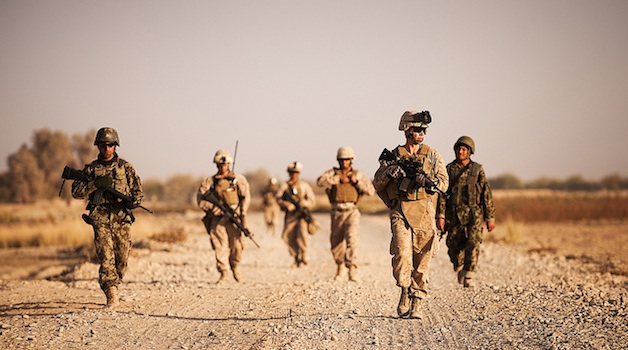Like countless other Americans—civilians, servicemembers, and Veterans alike—September 11th irreversibly altered my life trajectory. I decided to join the Army while still in high school, but when terrorists turned airliners into missiles when I was a junior, the peacetime Army melted away before I got there Instead of training exercises against an imaginary foe, we immediately trained for guerilla warfare in Iraq. I lost fellow soldiers during my deployment, just as thousands lost their family members and friends in the attacks the years before. I had loved them just the same.
But I’ve noticed something against the backdrop of somber remembrance and reflection that has overtaken much of the country today. The drive to serve others that has spurred troops through multiple deployments and ten plus years of war has transformed community service.
Before the nation realized it was at war, Rick Rescorla was already leading from the front. Many readers will surely recognize him from the cover of the book “We Were Soldiers,” with his eyes (and bayonet) pointing toward the enemy. As the chief of security for Morgan Stanley at the World Trade Center, Rescorla oversaw the evacuation of nearly all of Morgan Stanley’s 2,700 employees before WTC 2 collapsed, killing him in the process.
Rescorla’s story of sacrifice must be remembered, but that isn’t the whole story of what has emerged since September 11.
Veterans of Iraq and Afghanistan have rallied around their common bonds to continue their service to others, on the National Day of Service and beyond. Team Rubicon, a Veterans group that focuses on worldwide disaster relief, has partnered with The Sixth Branch to help restore poverty-stricken neighborhoods of Baltimore in recognition of the National Day of Service. And The Mission Continues, which provides Veterans with opportunities to continue their service after the military, held service projects around the country today.
It’s not just the sense of helping others that seems to drive these Veterans, but getting back something they lost since leaving the military. They once struggled to achieve something as a unit, and the bond that follows can scarcely be summoned in the civilian world. And at its most basic foundation, nearly everything you do in uniform benefits the group over the individual. It’s no surprise many Vets want to recapture that feeling.
While I see many reflecting on the anguish of September 11, and the agony of war that followed, it’s important to move and transform those feelings into something positive and long-lasting. The groups I mentioned have led the way in this regard, and have shown perhaps the quintessential American response to tragedy, as Faulkner put it, to not only endure but prevail.
Topics in this story
More Stories
Summer Sports Clinic is a rehabilitative and educational sporting event for eligible Veterans with a range of disabilities.
Report examines the input of over 7,000 women Veterans: They are happier with VA health care than ever before.
Veterans and caregivers, you can help shape the future eligibility requirements for the VA Caregiver Support program.







